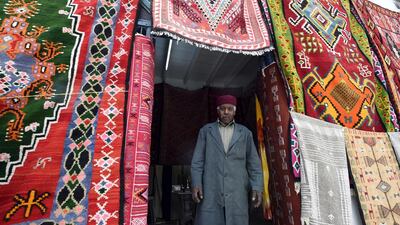A parasitic governing elite, misguided economic policies and a broken financial system have held back Tunisia’s development for decades, according to a World Bank report, which called for an overhaul of the country’s laws.
Describing the country’s economy “a system asphyxiated by its own corruption”, the World Bank said Tunisia was “an environment where cronyism and [rent] extraction, rather than competition and performance, drive economic success”.
The World Bank called on Tunisia to cut through protectionism in a bid to rid the economy of Ben Ali-era cronyism, liberalise its employment laws, and revisit the country’s banking regulations.
The report tells the story of an economy used as a vehicle for the enrichment of the deposed president Zine El Abidine Ben Ali and his family.
“Market regulation [became] a smokescreen for rent extraction by a small elite,” the report said, finding that about 20 per cent of the country’s corporate profits ended up in the hands of just 114 relatives of Ben Ali.
Family members ran businesses in sectors protected from competition by laws designed to outlaw entrants, and benefited from state bank loans without repayment schedules.
“A significant part of the private sector [was] appropriated for the regime by ring-fencing family-connected companies from regulations, or giving special advantages to those firms,” said the report.
Government regulations sprang up to ensure supernormal profits for politically connected businesses, leading to increased costs and a lack of innovation for consumers.
In most key industries, including power, telecoms, transport, tourism and retail, the total number of firms that can enter the market is restricted by law.
The country’s financial sector is also in poor health, with non-performing loans close to 13 per cent of total assets, according to a recent report from Capital Economics.
State-owned banks were the worst offenders, with high overheads, low profitability and low rates of return on assets and equity compared to other North African economies.
“The banking sector needs to be cleaned up,” said Jason Tuvey, an emerging markets economist at Capital Economics. Mr Tuvey, who predicted “a round of bank recapitalisations in the not-too-distant future”.
A dual legal system for firms that means different laws for companies on the coast “is at the root of the development challenges facing Tunisia today”, according to the World Bank.
This system involves the country being partitioned into “onshore” and “offshore” regions, intended to focus on the domestic market and the export market respectively.
But in practice, “offshore” firms are confined to low value-added, unskilled assembly activities, with finished goods bound for Italy or France.
And, in Tunisia’s “onshore” sector, protectionism and monopolies stifle competition and hamper innovation and productivity.
In both regions, protectionism has hobbled the ability of Tunisian firms to compete internationally, meaning that most firms are engaged in low-value added sectors and hire only low-skilled employees.
Only about 50 per cent of the economy is open to foreign entrants, while bureaucratic obstacles cost Tunisian firms about 13 per cent of their revenues, according to World Bank data. Instead, recent economic growth has mainly been powered by increases in population, and small-scale additions to the country’s capital stock.
“Our analysis highlights an economy that has remained frozen in low value-added activities and where firms are stagnating in terms of productivity and jobs creation,” the report said.
Mr Tuvey said: “Tunisia’s economy has faced a number of economic headwinds following its revolution in 2011.”
“Political instability [and]… tight credit conditions have… dampened investment. Growth has been far below the rates needed to bring down the high unemployment rate,” he added.
In a remarkable admission, the World Bank said it had been wrong to hail the Tunisian government’s achievements in its previous reports on the country’s economy.
“[The World Bank] has learned that … its engagement might perpetuate the kinds of economic systems that keep poor people poor,” the report said.
Long-nursed economic frustrations drove Tunisians to the streets in 2011, in a revolution that ended the 21-year rule of Mr Ben Ali.
The World Bank said Tunisians had “surprised the world with the audacity of the revolution”, and that “similar audacity is now required in [its] economic reforms”.
* with agencies
abouyamourn@thenational.ae
Follow The National's Business section on Twitter

